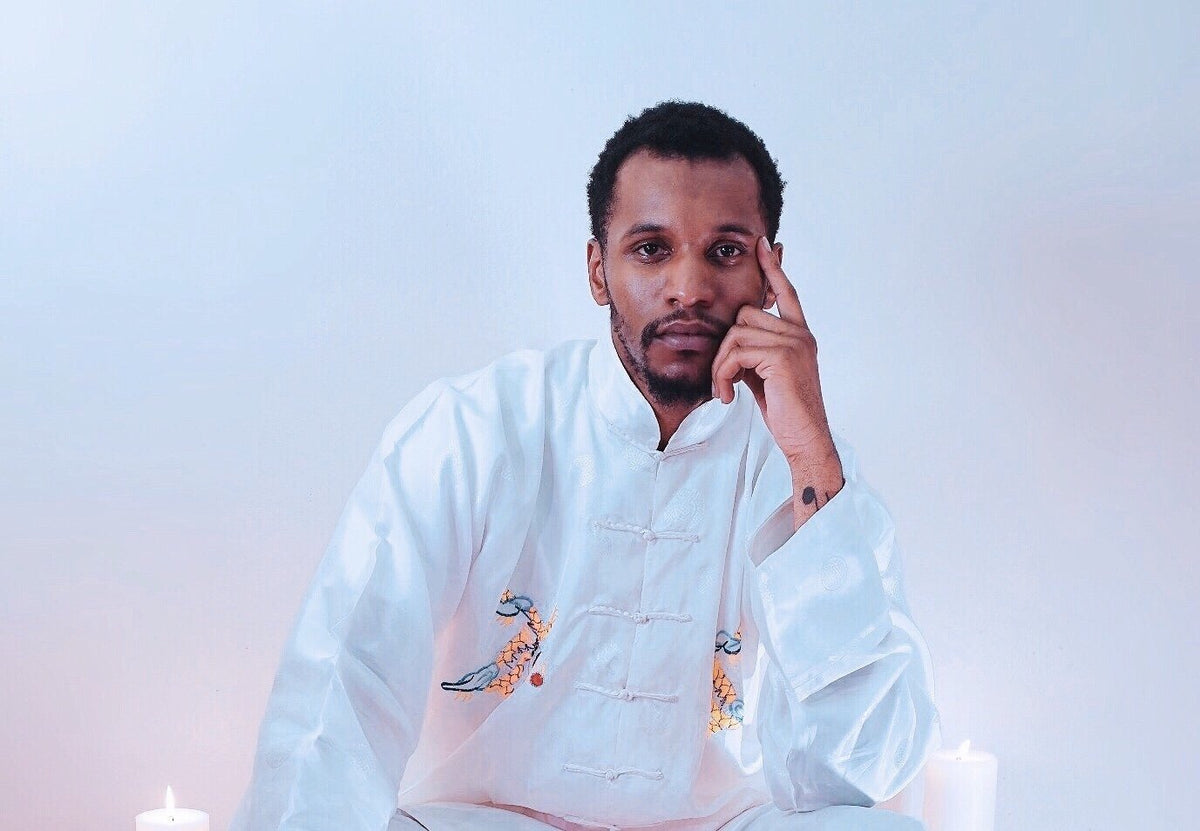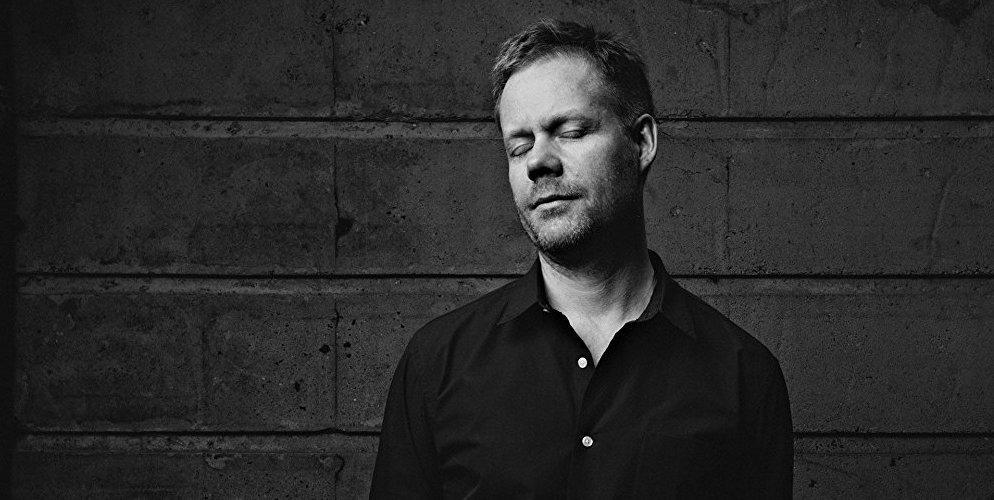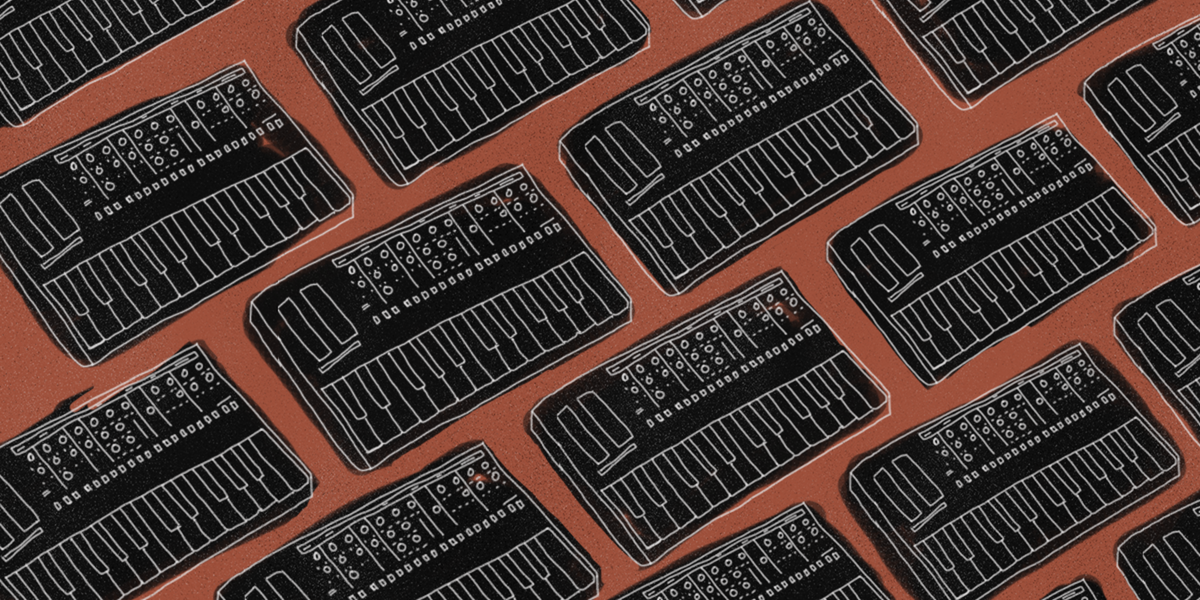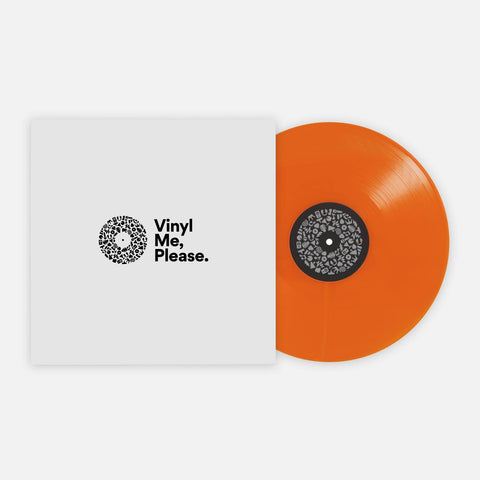South Africa’s Petite Noir Mixes Message With Pop Mastery
La Maison Noir / The Black House, the long awaited new release from world pop craftsman Petite Noir is out today, and you can grab a Vinyl Me, Please exclusive variant of the album in our store right now.
Below, you can read an interview with Petite Noir about representation in pop, working with Danny Brown, and his approach to his genre-bending music.
Yannick Ilunga is an unlikely pop artist, even by existing indie standards. A native South African with Congolese roots, he presents most of his work under the Petite Noir moniker. Anyone who caught his appearance alongside the likes of Kelela and Sampha on Saint Heron, a 2013 compilation on alt-R&B iconoclast Solange Knowles’ Saint Records imprint, would be reasonably struck by the uniqueness of his style, which was on early display just a few months prior on the breakthrough EP The King of Anxiety.
Mere days before a tragic ferry capsizing on Lake Victoria claimed over 200 lives and made international headlines, Ilunga spoke to me from Tanzania’s coastal former capital Dar Es Salaam, roughly 700 miles away, in the relaxed tones of someone enjoying a bit of well-deserved vacation time. Having so recently relocated to London from Cape Town that he measured the tenure in terms of weeks rather than months or years, he was preparing for the release of his first major recording project in three years, a follow-up to his critically acclaimed and genre splicing indie pop full-length debut La Vie Est Belle / Life Is Beautiful.
“It’s been quite a productive period,” Ilunga says, “Getting everything back in order and figuring out what the new direction is.” Framed as a mini-album, La Maison Noir / The Black House collects six songs from his fruitful sessions that he describes as a maturing of his already advanced sound. “There’s more of a message. It’s more personal.”
Listening to its storming lead single “Blame Fire,” that mix of individual narrative and sociopolitical worldview coexist seamlessly as Illunga reflects on his come-up in a celebratory and inherently spiritual mode. While that description superficially recalls urban genre tropes, the execution is anything but rote or formulaic, his gleaming and animated vocal surge with devotional repetition amid deceptively simple synth stabs and militant yet danceable polyrhythms.
Above all, “Blame Fire” appears to be connecting him with audiences he’s not reached before, raising his profile in the massive and oft regionally segmented African music community as well as internationally, with inclusion on BBC Radio and Apple Music’s Beats 1. “That single has broken down all these boundaries.” he said.
Having already been exposed to a diverse listenership over the past few years by way of considerable co-signs and collaborations courtesy of Solange, Danny Brown, and UNKLE’s James Lavelle, Ilunga continues in that communal spirit by partnering with his wife Rochelle "Rha! Rha!" Nembhard on “Hanoii” and radical hip-hop poet Saul Williams for “Blowing Up The Congo.” Nembhard also put together the visual component for the project, with striking Afrocentric imagery that makes for an attractive cover and corresponding package.
Reprising the successful team up with Brown on 2016’s Atrocity Exhibition highlight “Rolling Stone,” the arena goth ballad “Beach” seeks affirmation of life in the haze of Xanax and other unnamed drugs. “We met up in London and connected and it went well,” he says of their largely online relationship. As for Williams, they have yet to get together face to face, though he sees a common ground between the three vocalists. “We all have a rebellious, sort of progressive attitude,” he says. “I thought they would be such a perfect fit to bring into the Noirwave world.”
Speaking to that specific movement, one steeped in proud artistic notions of black excellence, there is a subtle subversion inherent to Ilunga’s approach, a meaningfulness and mindfulness that permeates what he releases as Petite Noir. His references can appear understated, though their compound heft remains felt. It’s a relative rarity in a time of what he casually derides as overstuffed with fast food music. “I wanted to give people something amazing,” he says, “that it’s coming from someone that actually cares about the listener.”
“The producer I worked with, Cid Rim, his production is a bit poppier and mine is more raw,” Illunga says of La Maison Noir‘s stealth accessibility. “Blending those together worked pretty well.” Their pairing came after he’d submitted demo versions to a number of potential producers, but it was the Austrian multi-instrumentalist that ultimately made the cut, though the process from there took longer than one might expect due to what Ilunga describes as an on-and-off working relationship.
“It came out exactly as I’d envisioned it,” he says of their finished product’s proximity to what he’d originally strived for. “When it got mastered, it was like the cherry on top.”
Essentially, Ilunga wants people to come out of the La Maison Noir experience with a heightened sense of progressiveness rather than feeling walloped by heavy handed dogmatic punditry. Though it’s fairly easy for a listener to appreciate these songs on their auditory merits, he stressed the value of processing the themes and meanings behind the lyrical content as well. “It’s not one of those projects where it’s like, the government’s this and the government’s that,” he says. “I hope people catch the message and, at the same time, get enchanted by the actual music, by the sound.”
Not surprisingly, Ilunga aims to bring some of that enchantment into the concert space as well. He promises a strong visual aesthetic, courtesy of creative director Nembhard, that reflects the musical vision. “She is as much involved in this project as I am,” he says of her connection. “I can’t say that Petite Noir is just me anymore.” He attributes no small amount of his success and artistry to her, and expects that to translate well to the live vibe. They’re even putting together a movie that Ilunga believes will put all of this in context, transforming La Maison Noir into a visual album akin to what Frank Ocean did with Endless.
Overall, his ambitions and passion for Petite Noir stem from a closely held pride and identity. “I want to represent Congo in a way that it’s never been represented before,” he says. “I want to represent Africa--and I want to represent the world.”
Born, raised and still living in New York City, Gary Suarez writes about music and culture for a variety of publications. Since 1999, his work has appeared in various outlets including Forbes, High Times, Rolling Stone, Vice and Vulture, among others. In 2020, he founded the independent hip-hop newsletter and podcast, Cabbages.
Related Articles
Join the Club!
Join Now, Starting at $36Pages








